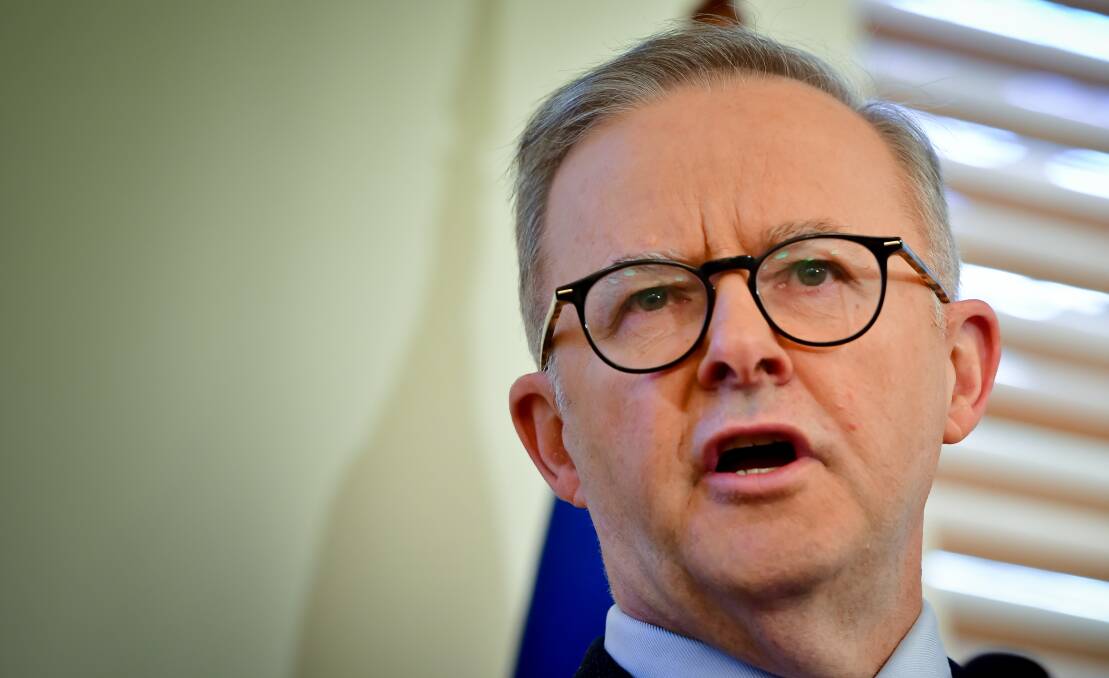
To their great credit the Labor Party, the teal group of independents, other independents and the Greens placed some elements of public sector integrity high on their political agenda in the recent federal election. Arguably, it was a deciding factor for many Australians as they cast their vote. But promises are one thing and actions another.
Subscribe now for unlimited access.
or signup to continue reading
The Albanese Labor government pledged to move swiftly to establish an effective and therefore appropriately resourced anti-corruption body, guaranteeing voters that the necessary legislation would be tabled in Parliament before the end of this year.
Crucially, the Labor government's model must ensure that no elected representative is treated differently to anyone else in the public sector, which is precisely what the Liberal-National Coalition government was attempting to do with its disgraceful divided and divisive Commonwealth Integrity Commission.
Theirs was a hypocritical attempt to shield all elected members of Parliament and 80 per cent of appointed public servants from transparent accountability.
To be polite, the CIC was a nonsense integrity policy. The electorate saw through the hypocrisy accompanying the model and will do so again should the current government attempt to tinker, even slightly, with what they repeatedly promised voters they would deliver.
What is not required is further consultation on which model provides much needed accountability and transparency across all elements of the public sector.
There is no need to spend additional taxpayer funds seeking the views of experts. The overwhelming majority have repeatedly made their opinions public through open letters to the former prime minister, numerous opinion pieces and public submissions outlining the structure and powers required to create the type of anti-corruption body Australians are entitled to expect from any citizen-respecting government capable of placing the public interest before all other interests.
The government must not allow itself to be convinced by the party, political staffers and/or senior public servants that a less stringent anti-corruption model will suffice. This is allegedly what happened in Victoria. Voters were promised a powerful anti-corruption body prior to the 2010 election and were delivered a suboptimal model post- election.
The credibility of the Labor government and the trust people have in it will be judged in large part on the anti-corruption model it puts before the Parliament, just as the credibility of the Liberal-National Party Coalition was judged on the CIC model it argued was capable of delivering effective accountability. It wasn't and voters knew it.
But an integrity system stretches well beyond establishing an anti-corruption body. It encompasses many other elements including truth-in-political-advertising and political donations laws.
Hypocrisy in public life raises its ugly head yet again in respect to truth-in-political-advertising law.
How any citizen-respecting parliament could pass laws that require truth in advertising for all organisations except political parties is something that has never been adequately explained, probably because the only credible explanation is self-interest.
What the exemption amounts to is permission to be untruthful to Australians when seeking their vote.
Clearly all members of Parliament, without exception, should work together to ensure truth-in-political advertising before the next federal election.
Interestingly, little was said about reforming the political donations regime in the lead-up to the recent election. The notable exception was in relation to Clive Palmer's reported $100 million campaign spend and to a lesser degree the many millions donated by Simon Holmes à Court to the teal group and a few other independents.
Those responsible for allowing this to happen are the parliamentarians who have served in many previous parliaments.
If their party and personal interests had not taken precedence over the public interest, meaningful and much-needed political donations reform would have happened years ago. For example, a cap on campaign expenditure would have stopped extremely wealthy Australians from using huge sums of their personal wealth as a means to try and achieve their desired ends.
How can Australia's political donations regime still embody processes that permit the identity of those who make sizeable donations of under $14,500 to be hidden from voters and donations over $14,500 to remain a secret until many months after Australians have cast their vote?
Why is there not a modest cap, say $1000, on all donations notwithstanding their source and regardless of what obscure form they may take?
To her credit, Finance Minister Katy Gallagher recently raised the issue of capping campaign expenditure. But she needs to go further and advocate strongly for genuine real time disclosure and a $1000 cap on all forms of donations.
One can only hope that every elected representative in the current Parliament has their ethical compass pointing in the right direction, the direction that ensures the public interest takes precedence over personal and party interests.
It could happen if they act according to the principle that public office is a public trust.
- Dr Colleen Lewis is an honorary professor at the Australian Studies Institute, ANU.

